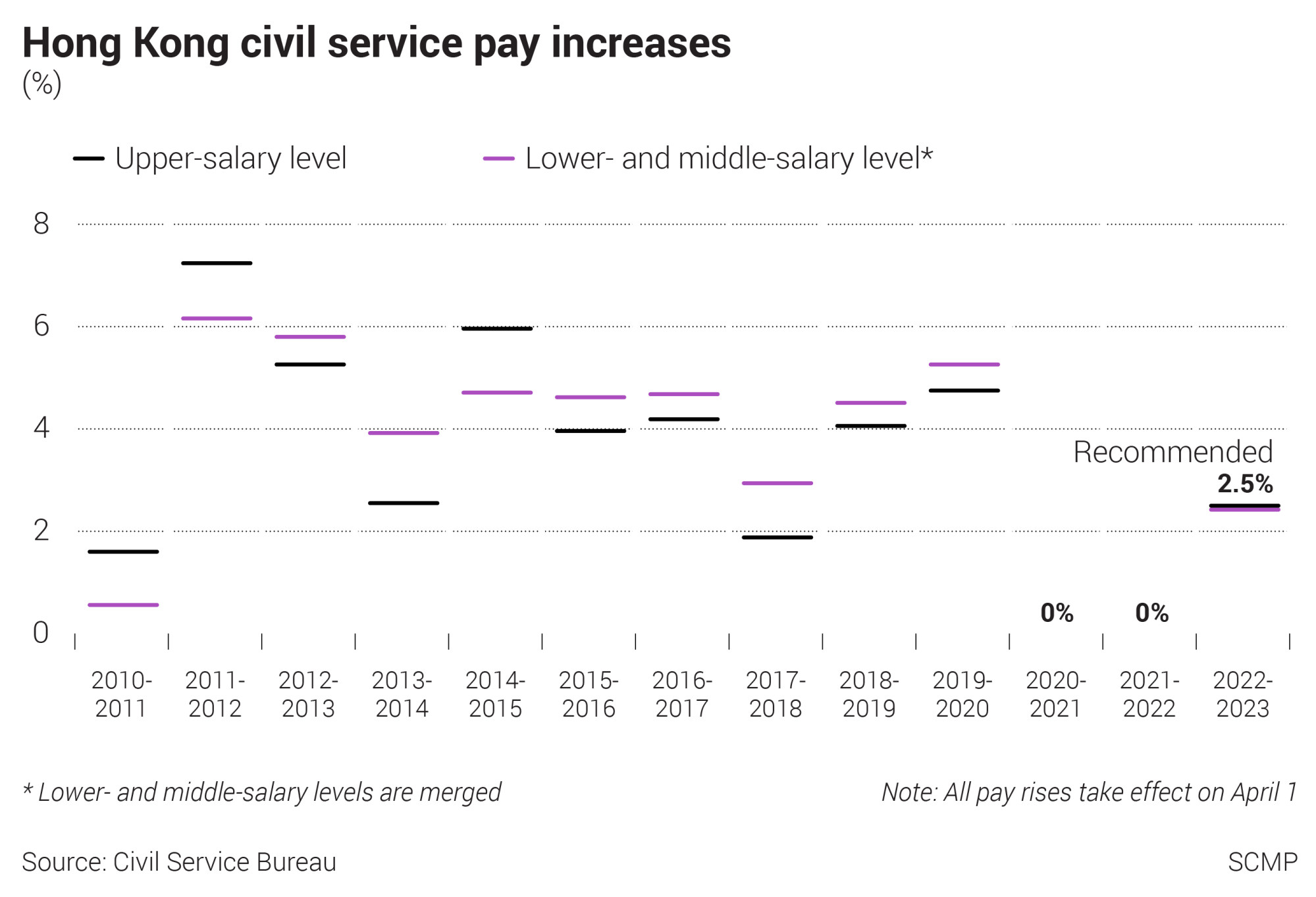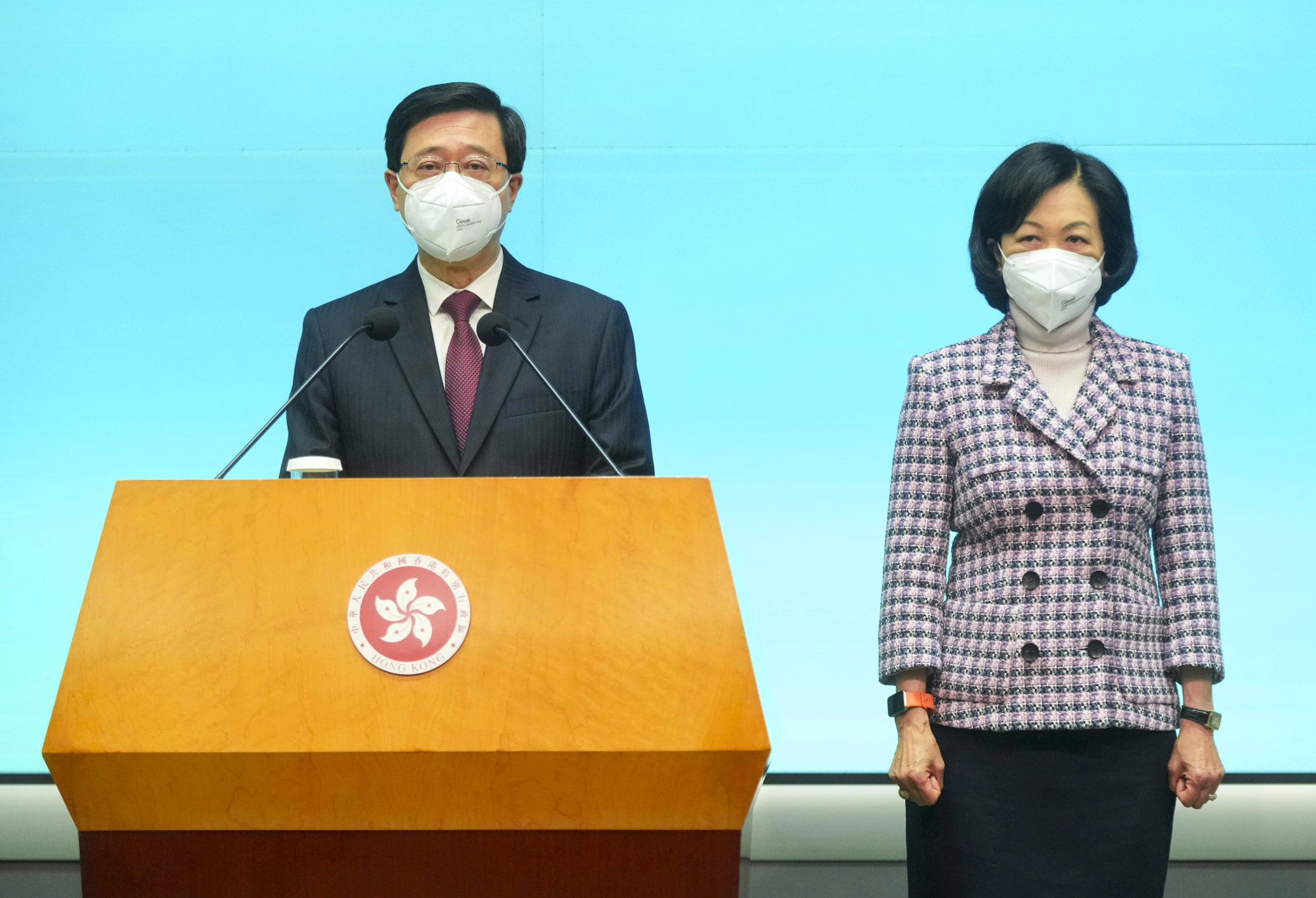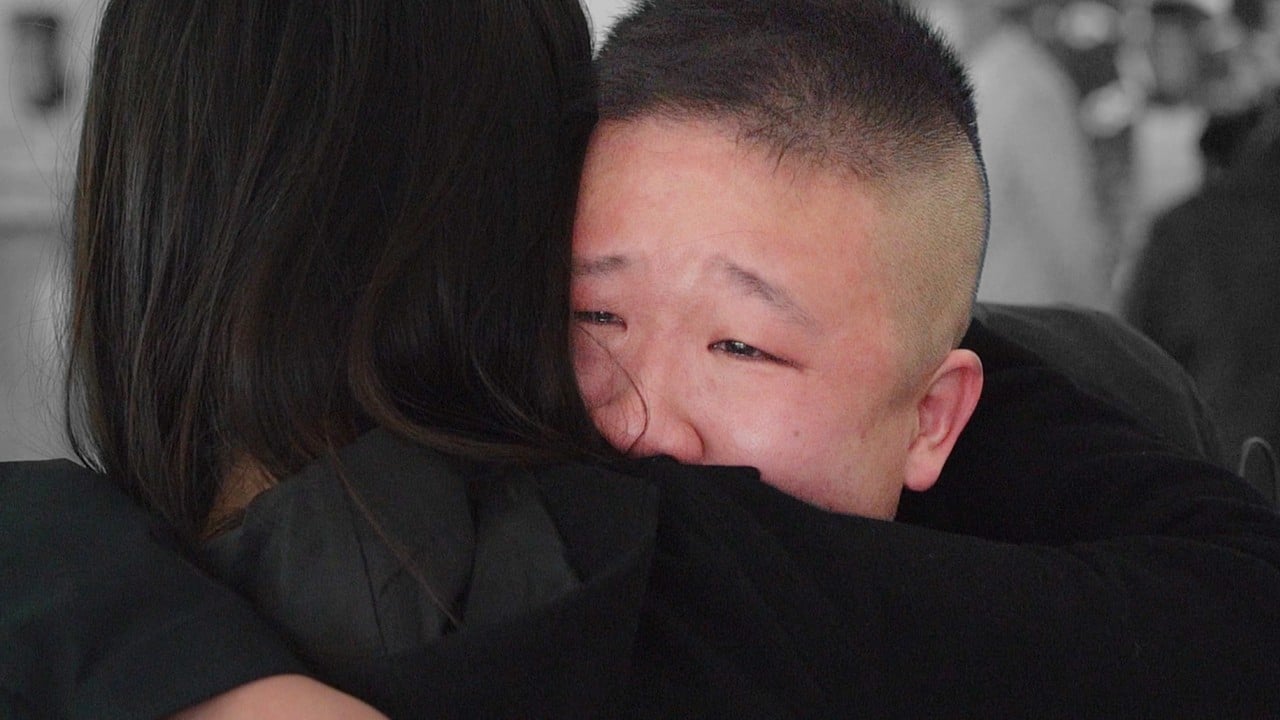
Proposed 2.5 per cent pay rise for Hong Kong civil servants pits top government advisers against unions
- Pay increment was endorsed by Chief Executive John Lee’s de facto cabinet on Tuesday
- But civil service unions say amount does not fairly reflect bigger workload workers faced during pandemic
Top advisers to Hong Kong’s leader have endorsed an across-the-board pay rise of 2.5 per cent for civil servants, rejecting a recommendation for increases as high as 7.26 per cent that was criticised by a leading business chamber and even senior politicians as out of step with the current economic climate.
But civil service unions on Tuesday decried the smaller suggested pay rise as unfair to the city’s 180,000 government employees whose workload had only increased during the Covid-19 pandemic, while lawmakers representing labour said the proposal amounted to a salary reduction, given rampant inflation.
Members of the Executive Council, the de facto cabinet of city leader John Lee Ka-chiu, agreed to support the 2.5 per cent rise as they held their first meeting following his inauguration on July 1.

The size of the increase had been hotly debated ever since a pay trend survey report suggested in May that civil servants in the lower, middle and upper salary bands receive bumps of 2.04 per cent, 4.55 per cent and 7.26 per cent, respectively. Previous leader Carrie Lam Cheng Yuet-ngor declined to state her views on the recommendation, opting instead to leave the decision up to her successor.
In announcing Exco’s decision, Secretary for the Civil Service Ingrid Yeung Ho Poi-yan pointed to economic uncertainties and an unpredictable geopolitical situation, as well as inflation elsewhere as major considerations for choosing a lower figure.
“Hong Kong’s economy has been facing a complex situation in the past year,” she told the press shortly after the high-level meeting finished. “Despite the strong rebound in 2021, the economy was severely hit in the first quarter of 2022 in the fifth wave of the epidemic.
“Although the business atmosphere and the employment situation have changed for the better in recent months, uncertainties remain in the overall economic situation.”
Exco had also considered increases in the cost of living, the government’s fiscal position and morale within the ranks before coming up with its figure, Yeung said, as she dismissed concerns a lower pay rise would trigger an exodus of civil servants.
“The large number of applications we received in previous recruitment exercises showed we remain competitive in the job market,” she said.
“To civil servants, their jobs are appealing not only because of the salary level, but also the satisfaction in the public service and making progress for the society.”

Yeung also defended the mechanism that determined salary increase recommendations, noting the pay trend survey, which this year involved information about remuneration from 111 companies, was only one of six factors the government took into account.
“[The survey] has never been the only factor that we consider or a factor that we must follow,” she said. “Truth be told, over the past 29 years of the pay trend survey, there are 10 years where the final decision had a large difference with the pay trend survey.”
The minister also expressed confidence that her fellow civil servants would understand the adjustment was part of the government’s efforts to achieve a speedy economic recovery.
In May, the government downgraded its full-year forecast for local economic growth to 1-2 per cent from 2-3.5 per cent previously, reflecting the havoc caused by the fifth wave of the coronavirus in the first quarter.
Hong Kong civil servants may get record 7.26 per cent pay bump
The lower salary tier refers to government staff earning less than HK$24,070 (US$3,066) a month. The middle band comprises those bringing home HK$24,070 to HK$73,775, while the upper band refers to senior workers earning more than that.
The proposed salary increase will next go to the Legislative Council for a vote and, if approved, will take effect retroactively from last April.
Defending the endorsement for a smaller increase, Exco convenor Regina Ip Lau Suk-yee said Hong Kong should practise prudent fiscal management given the complicated geopolitical situation.
“For example, a possible long Russia-Ukraine war might affect China’s economy beyond the surge in commodity prices,” she said.
Executive councillor Ronny Tong Ka-wah said the survey’s suggested 7.26 per cent pay rise for senior staff was a reflection of private companies’ efforts to retain management-level employees amid a wider exodus, a problem he did not regard as relevant to the civil service.
Tong noted the survey mainly involved large and medium-sized companies, but the government had to also consider salary changes made by small businesses struggling due to the pandemic.
Tuesday’s announcement was also welcomed by the Hong Kong General Chamber of Commerce, which had previously dismissed the survey’s 7.26 per cent increase as “out of touch with reality”.
“The 2.5 per cent rise should ease the burden of possible increases in staff costs that business will need to bear, especially the small and medium-sized enterprises, as a result of the ripple effect from civil servants’ pay adjustment,” it said.
But representatives for civil servants were sharply critical of Exco’s decision, with some vowing to push for what they viewed as a more equitable increase when they met the government to discuss the offer on Wednesday.
“There is a double standard. On one hand, you are saying that we are a good team, on the other hand, you propose a figure that is markedly different from the indicators,” said Gene Fung Chuen-chung, chairman of the Hong Kong Civil Servants General Union.
Hong Kong cuts economic forecast after first-quarter GDP shrinks 4 per cent
Adopting Exco’s recommendation would reinforce the perception the government was reluctant to devote resources to hiring, retaining and motivating civil servants, Fung added.
Leung Chau-ting, chief executive of the Federation of Civil Service Unions, called for a rise of roughly 4 per cent, which he argued would reflect the additional work colleagues undertook during the past two years of the pandemic, such as carrying out lockdowns, manning testing sites and handing out supplies.
“You have to give our colleagues some sort of consolation,” he said. “You cannot ask employees to work hard without giving us the proper wages.”
Li Kwai-yin, president of the Chinese Civil Servants Association, predicted that civil servants would be disappointed with the adjustment given their pay was frozen for the previous two years. She proposed an increase of 5.3 per cent to make up for inflation over the past three years.
Two lawmakers from the Federation of Hong Kong and Kowloon Labour Unions said the proposed 2.5 per cent increase deviated too much from the survey recommendation and amounted to a “de facto pay cut” amid the worsening inflation.



